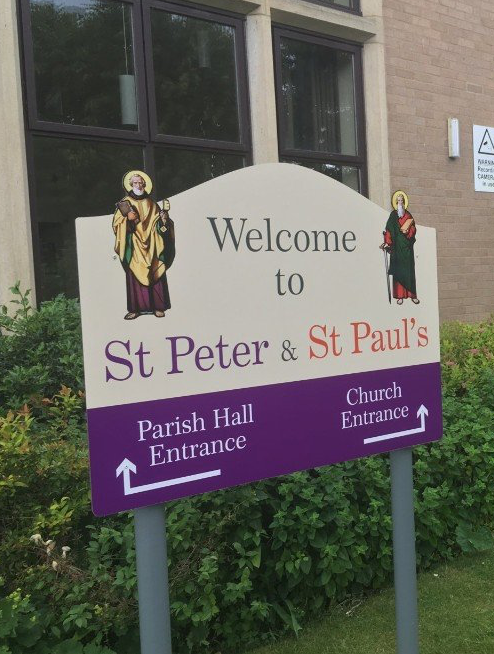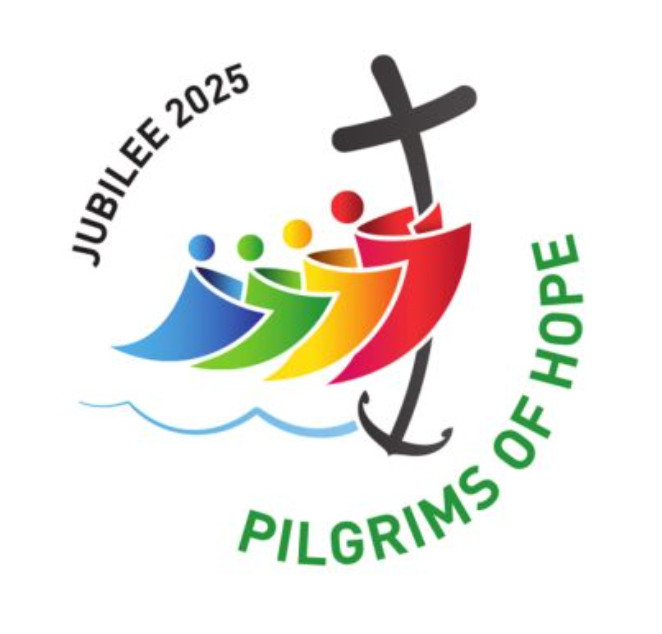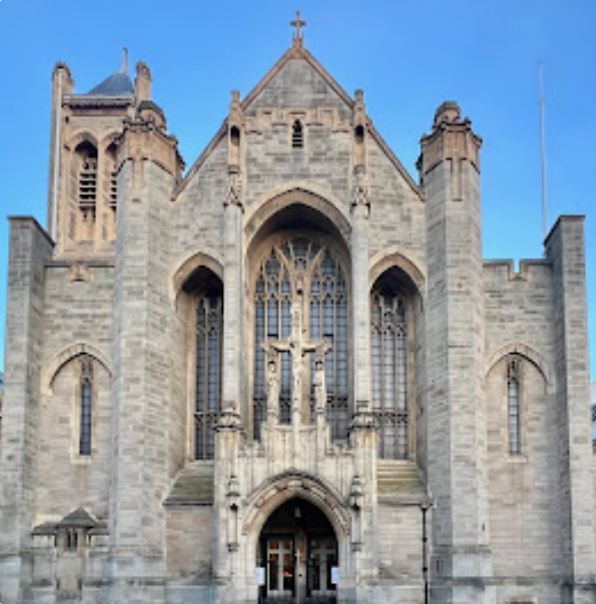How to talk to non-Catholics about the Faith
How to talk to non-Catholics about the Faith
EMILY STIMPSON
As ‘the Francis effect’ prompts more people to inquire about the Church and her beliefs, be ready to respond.
In 2013, Pope Francis had barely settled into his new Vatican living quarters when some enterprising journalist coined a phrase: “the Francis effect.”
Over the course of the past year, that phrase has repeatedly resurfaced in the likes of The Boston Globe , The New York Times and The Economist , alluding to what some see as a renewed interest in the Catholic Church sparked by Pope Francis.
The evidence, however, suggests that the more apt phrase might be “the Francis moment.”
This past spring, a Pew Research Centre study concluded that no noticeable flood of conversions or reversions has followed Pope Francis’ installation.
On the other hand, more than a third of all respondents indicated that the new Holy Father has favourably affected their view of the Catholic Church. A quarter of Protestants surveyed said the same.
Along with those numbers, the media attention showered on Francis has garnered the Catholic Church a steady stream of positive news coverage.
People are talking about the Church and her pope. They’re paying attention to both, and many like what they see.
For Catholics, this moment — this “Francis moment” — presents an opportunity to engage people in deeper conversations about the Faith. It’s an occasion for evangelization — at work, at school, even at the shopping mall. Or, at least, it can be, if Catholics seize the moment.
To that end, Our Sunday Visitor talked to some of the Church’s leading experts on evangelization about how Catholics can more effectively (and confidently) talk to non-Catholics about Jesus Christ and his Church.
Emily Stimpson is an OSV contributing editor.
1. Look for opportunities
When it comes to evangelization, Catholics often believe nobody wants to hear about their relationship with God. But according to Sherry Weddell, author of “ Forming Intentional Disciples: The Path to Knowing and Following Jesus ” (OSV, $16.95) and co-director of the Catherine of Siena Institute, that’s simply not the case.
“A quarter of all adults in this country are actively spiritually seeking or passively scanning the horizon, looking for alternatives,” she said. “It’s not rare. The more you look for opportunities, the more you’ll find them.”
Sometimes, those opportunities easily present themselves. A casual mention of God on an airplane can trigger a deeper conversation. A co-worker’s recent good fortune can lead to a discussion about grace and blessing.
Good opportunities, however, don’t always come in neatly wrapped packages. And if you wait for the perfect moment to broach the God question with your agnostic sister-in-law, you might wait forever. That’s why Rob Corzine, vice president of programs and development at the St. Paul Centre for Biblical Theology, advises against such waiting.
“There is no perfect moment,” he said. “Somebody who is in love or has a new grandbaby doesn’t wait for the perfect moment to talk about those things. Neither should Catholics when it comes to the Faith. It should come up naturally, in the course of an ordinary conversation. Whatever time and place is good for a conversation is good for this conversation.”
“But not every conversation,” he cautioned. “Don’t be that guy.”
2. Build trust
Before launching into the finer points of transubstantiation and the Trinity, it helps to have a relationship with the person to whom you’re talking.
“A basic foundation of trust has to be in place,” Weddell explained. “Even if they don’t believe in God, they can still trust you. You can be that bridge.”
That doesn’t mean you have to know the person for 10 years before mentioning God. The person sitting next to you on your flight to Phoenix may be exactly the person with whom God wants you to share your faith. But it usually does mean you need to talk about other topics — baseball, children or what you do for work — before venturing onto more sacred ground.
Likewise, whether you’ve known someone for five minutes or five decades, you need to show genuine interest in them as a person, not just as an object for evangelization.
“People don’t care how much you know until they know how much you care,” explained Terry Barber, founder of St. Joseph Communications and the author of “ How to Share Your Faith With Anyone: A Practical Manual for Catholic Evangelization ” (Ignatius, $14.95).
They also don’t care what you say if your actions don’t match your words.
“You have to walk the talk,” Barber continued. “Smile. Show enthusiasm. Practice virtue. The greatest barrier to evangelization today is bad example.”
3. Ask questions
People who think they already have all the answers about God, life and the meaning of everything generally aren’t open to conversations about faith. No matter how beautiful, powerful and compelling the Church’s answers to life’s greatest questions might be, if someone isn’t asking those questions, the Church’s answers won’t interest them.
So, what does a would-be evangelist do then? “Help them ask questions,” Corzine said. “The goal is to not give people answers until they have questions. If someone isn’t asking questions, they’re not ready to hear the answers that everybody needs.”
Sometimes, he continued, “Your personal witness — a normal, fun, interesting person who takes their faith seriously — can become a question in someone’s life.”
Other times, more is required.
“The best way to arouse curiosity is to ask questions yourself,” Weddell said. “Which, if you look through the Scriptures, is what Jesus did most of the time.”
Those questions can range from the grand — “What does life mean?” “Why are we here?” “Does truth exist?” — to the more personal and prosaic — “Why do you believe what you believe?” “Where has God been in this decision-making process?” “How has God blessed you?”
“God desires every man, woman and child to come to know him and follow him as a disciple,” said Curtis Martin, president of the Fellowship of Catholic University Students (FOCUS). “You’ll be surprised, once you start asking questions, where a conversation can go.”
4. Listen
In the process of evangelization, asking questions isn’t just a rhetorical device to get people asking questions of their own. It’s the only way you, the evangelist, can know where to take a conversation.
“If you were designing a course on Catholicism, there would be a logical order or progression to the topics you addressed,” Corzine said. “But when talking to individuals, the psychological order is more important than the logical order. If someone has a question, that’s where you start. The piece of information that might be exactly what one person needs is the last thing you should say to another person. But you need to listen to know that.”
“You want to scratch the itch,” Barber added. “Some people have problems with the Church’s teaching on Mary. Other people don’t like purgatory. Or they struggle with belief in general. You want to address the topics that concern them the most.”
Listening, however, doesn’t only tell you what itch to scratch. It also tells you when to stop scratching.
“Our job is not to be pushy,” Martin said. “It’s not to force people to make decisions. That’s when evangelization becomes proselytizing.
“If someone says they don’t want to talk about a topic or they freeze up, then stop talking and love them in that moment.”
5. Tell stories
In an age where much of the population thinks everything is relative, including truth, personal stories of grace and conversion are the best tools in an evangelist’s toolbox.
“No one can argue with your story,” Martin explained. “It pierces relativism.”
Providing that story starts with knowing it. Weddell, Corzine, Barber and Martin all agree that every Catholic needs to know how to give a three-minute account of their conversion story — of how they met Jesus and came to love and follow him. Every Catholic also needs to have a few other stories at their disposal — stories about how God has worked in their life, blessed them and drawn them closer to him.
“People are looking for something lived — stories of answered prayer and experiences of the presence of God,” Weddell said. “If we can tell those stories in natural, easy ways, people will remember them. They may not respond immediately, but they will tuck it away.”
Besides personal stories, you also need to know Jesus’ story. That includes both the overarching story of salvation history and a few individual Bible stories that speak to particular struggles or questions.
“Most people have to process who Jesus is, what he’s done and what it means to them before they can make a decision,” Weddell said. “Help them come in contact with that story. Give them the opportunity to wrestle with who he is.”
6. Pray
Fruitful evangelization begins and ends with prayer. In some sense, it is a prayer.
“The goal of evangelization is a transformed heart,” Corzine said. “And that is always the work of the Holy Spirit, not a human evangelist. We’re just one beggar telling another beggar where we found some bread.”
“Our goal is to cooperate with the Holy Spirit,” he continued. “That’s where the work is done. We need to do the sharing and address intellectual issues when they arise, but to start with the arguments gets it upside down.”
To keep that truth in mind, Weddell recommends praying regularly for people at different stages in their spiritual journey and praying for what she calls “divine appointments.”
“There are people out there that I don’t know, but who God knows are ready, and I pray that God brings them to me,” she explained. “When they come, you walk with them along the part of the journey that you can, then you trust them to God.”
As for how much to pray, Corzine offers this rule of thumb: “Always talk to God about your friends and family more than you talk to your friends and family about God.”
7. Just do it
Coming up with excuses not to evangelize is easy — “It’s not the right time”; “I’ll say the wrong thing”; “Someone else could do this better.”
But in the end, letting those excuses prevent us from sharing the Faith may be the biggest mistake Catholics make when it comes to evangelization.
“We are empowered and obliged by our baptism and confirmation to share the Good News in word and deed,” Corzine said. “Too often, Catholics adopt the spirit of the age and think it’s intolerant to want non-Catholics to come into the Church, or we let our own vanity and fears get in the way. But the Lord, in shocking ways, will make perfect use of whatever we’ve got, if we just give him the opportunity.”
Added Martin, “Statistically speaking, the odds of us running into a person who is outside the Church or who left the Church, but who is going through a Francis moment is really high. Every journey begins with one step. Now is the perfect time to take it.”
ACKNOWLEDGEMENT
Emily Stimpson. “How to talk to non-Catholics about the Faith.” Our Sunday Visitor Newsweekly (July 2, 2014).
Reprinted with permission from Our Sunday Visitor Newsweekly and the author. To subscribe to Our Sunday Visitor Newsweekly go here.
THE AUTHOR
Emily Stimpson is a freelance Catholic writer based in Steubenville, Ohio. She is a contributing editor to Our Sunday Visitor Newsweekly, a blogger for CatholicVote.com, and a columnist for Lay Witness. Her books include These Beautiful Bones: An Everyday Theology of the Body and The Catholic Girl’s Survival Guide for the Single Years . Her next book, The American Catholic Almanac: A Daily Reader of Patriots, Saints, Rogues, and Ordinary People Who Changed the United States , co-authored with Brian Burch, will be published by Doubleday Image in September 2014.
Copyright © 2014 Our Sunday Visitor











